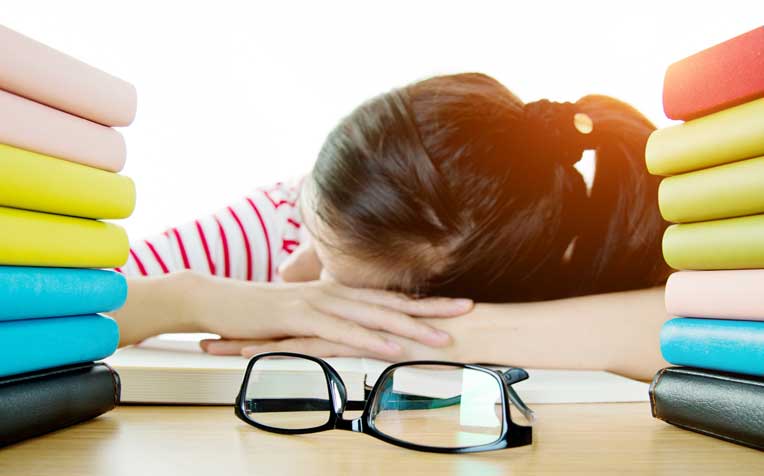
Lack of sleep in teenagers may dampen their mood, reduce concentration in school, cause weight gain or even lead to depression.
Sleep problems for teenagers may potentially affect their day-to-day activities and their health.
Getting less than four hours of sleep every night and waking up early the next day almost seems to be the norm for many Singapore teenagers. Sleep problems can dampen your mood, zap your energy and reduce your concentration in school. Some gain weight or become depressed.
“Studies have shown that people who sleep less than four hours have higher mortality rates than those with seven-eight hours of sleep,” says Dr Toh Song Tar, Head & Senior Consultant, Department of Otolaryngology, Singapore General Hospital (SGH), a member of the SingHealth group.
During sleep, the body releases a growth hormone that is important for physical growth in children and teens. Teenagers should get eight to nine hours of sleep every night, adds Dr Toh. Otherwise their physical growth may be affected.
So what causes teenagers to lose sleep?
Youths generally cite the following causes for their sleep problems:
- Worrying over unfinished business (school work, tests and exams)
- Playing video games late at night
- Online chats with friends
- Difficulty falling asleep (insomnia)
- Watching late-night television
- Stress
But there is also a biological explanation for the “sleep late, wake up early” syndrome in teenagers. The onset of puberty and a teenager’s penchant for late nights may cause the body to delay melatonin production, a hormone which induces sleepiness and regulates sleep patterns.
Myths about sleep
Loss of sleep can be compensated
Sleep debt cannot be compensated and chronic sleep deprivation can lead to obesity, hypertension and heart disease.
Drinking alcohol can make you sleep better
Drinking alcohol at night may make you feel drowsy and sleepy, making it easier for you to fall asleep. But it will reduce REM sleep or deep sleep and cause frequent awakening at night, thus affecting your overall sleep time and sleep quality. Over time, one would also need more and more alcohol to get to sleep.
Exercising can overcome sleep problems
Depends on what time you exercise. Late-night exercising may not help with insomnia. At night, body temperatures normally fall as you prepare to sleep, while rigorous exercise temporarily raises your body temperature and keeps you wide awake. Avoid exercising at least four hours before bedtime.
Ref: T12Related Articles
Public Events
Get the Health Buddy App
© 2025 SingHealth Group. All Rights Reserved.

















 Get it on Google Play
Get it on Google Play